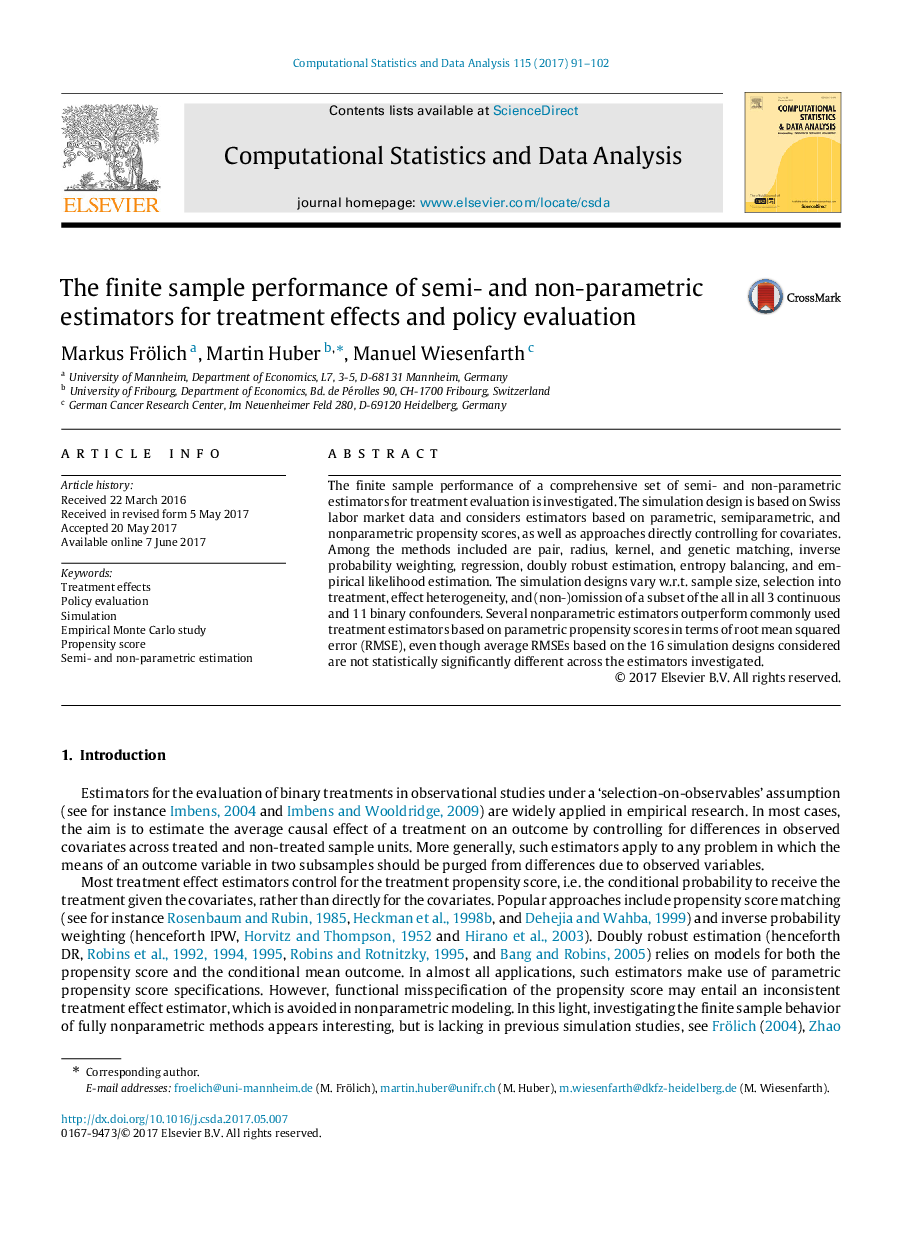| Article ID | Journal | Published Year | Pages | File Type |
|---|---|---|---|---|
| 4949239 | Computational Statistics & Data Analysis | 2017 | 12 Pages |
Abstract
The finite sample performance of a comprehensive set of semi- and non-parametric estimators for treatment evaluation is investigated. The simulation design is based on Swiss labor market data and considers estimators based on parametric, semiparametric, and nonparametric propensity scores, as well as approaches directly controlling for covariates. Among the methods included are pair, radius, kernel, and genetic matching, inverse probability weighting, regression, doubly robust estimation, entropy balancing, and empirical likelihood estimation. The simulation designs vary w.r.t. sample size, selection into treatment, effect heterogeneity, and (non-)omission of a subset of the all in all 3 continuous and 11 binary confounders. Several nonparametric estimators outperform commonly used treatment estimators based on parametric propensity scores in terms of root mean squared error (RMSE), even though average RMSEs based on the 16 simulation designs considered are not statistically significantly different across the estimators investigated.
Related Topics
Physical Sciences and Engineering
Computer Science
Computational Theory and Mathematics
Authors
Markus Frölich, Martin Huber, Manuel Wiesenfarth,
